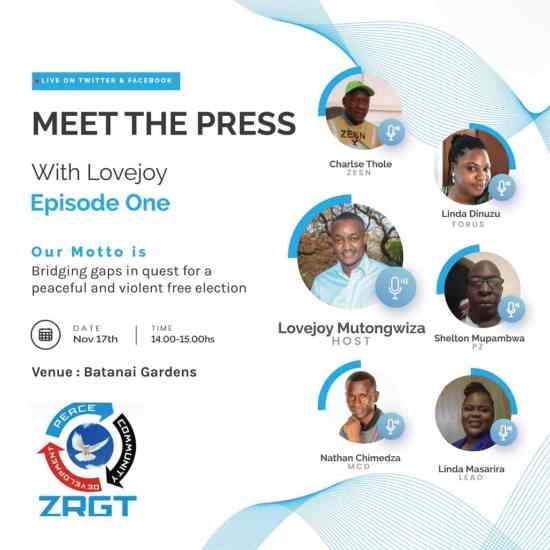
The National Peace and Reconciliation Commission (NPRC) has expressed its commitment to forge national cohesion and peace in the country including looking into the history of conflicts as far back as the 1890s, a period the country was colonized by Britain.
Addressing the media in Harare on Tuesday, NPRC Commissioner, Choice Ndoro said they will look into the root causes of conflicts in Zimbabwe.
“The issue of conflicts in Zimbabwe emanates from the 1890s, it takes many turns and dimensions, racial side, conflict between ethnic groups and over natural resources, conflict to maintain political dominance so it is important to put into epochs the various conflicts that have befallen Zimbabwe,
“To understand the root causes of conflict you need to go as far back as possible and for Zimbabwe the 1890s would be a very good starting point,
“This is in the sense that, when we have the pioneer column, there is conflict over resources, over races, political domination and violence, the same conflict is evolving today but the root causes remain the same,” said Ndoro.
She further noted that the pre colonial period is of critical importance as it gives an in-depth analysis on the origins of conflict in Zimbabwe.
NPRC identified gaps and loop holes around elections which they say need to be looked into as the country heads into the 2018 elections.
“Elections in Zimbabwe are very contested within, across politics and there is also conflict at grassroots level,
“So in other words elections in Zimbabwe have conflict at community level, political party level and at strategic apex level,
“So the commission will take a comprehensive view in order to understand and put programming in place. Elections are a cycle, they are not an event but a process and Zimbabweans have had a problem with elections because the pre election problem has not been fixed, the commission will take a holistic and circular fashion in terms of managing the elections,” added Ndoro.
In an interview with 263Chat, Commissioner Netty Musanhu stressed the commission’s plan to decentralize its operations to enable citizens to access their services.
“The commission in terms of it’s plan and direction would like to decentralize not just in terms of offices but also operations but what we are looking at are the resources that will enable us to be everywhere,
“The work of the commission did not start now, we have a lot of stakeholders, churches that have been doing peace building in communities,
“Our role as a commission is to work together with all the stakeholders in the communities, so that they carry all the views of the commission to the community,” said Musanhu.
She acknowledged that elections have come with a lot of conflict expressing NPRC’s commitment to ensure that people campaign in peace with women and vulnerable groups freely participating in the processes.








